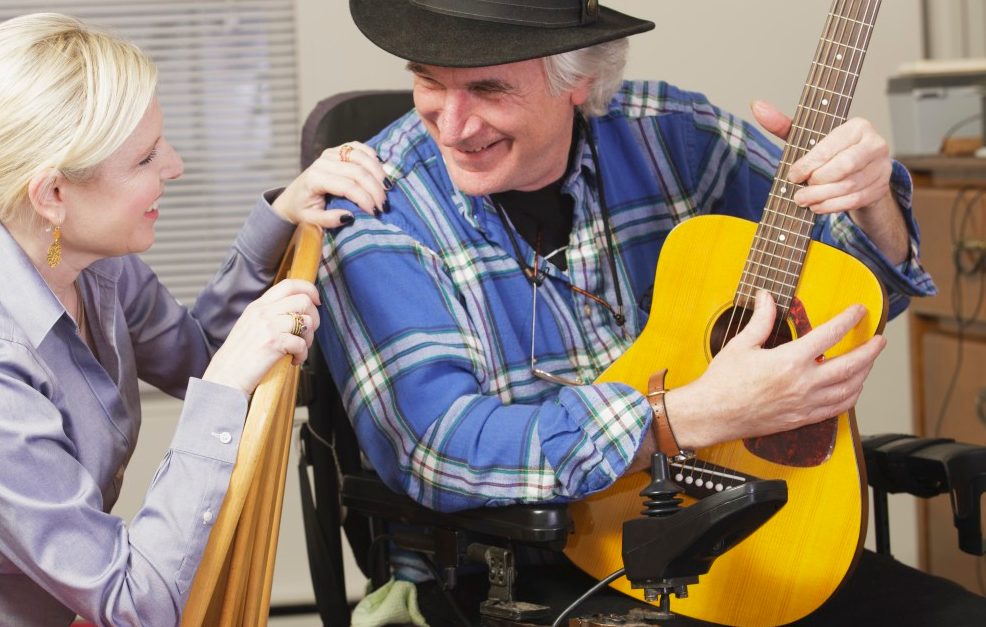Caring for Someone with ALS — Continued

Create a caregiving plan
When your loved one is first diagnosed, meet with the doctor to figure out their upcoming needs. Learn all you can about ALS and its progression, so you’ll know what to expect.
Create a plan for dealing with some of the most common issues in ALS care, including:
- Home accessibility
- Mobility
- Bathing, going to the bathroom, and other personal hygiene tasks
- Diet and exercise
- Depression
- Medical appointments and taking medication
- Communication problems
- Breathing
- Sleep issues
- What to do in an emergency
Because the course of the disease can be unpredictable, be flexible enough to shift your plan when necessary.
Adopt a team approach
Whether you’re caring for your spouse, parent, or child, don’t shoulder the burden alone. Caregiving is — or at least it should be — a team effort. Surround yourself with friends and family members who are willing to chip in and relieve some of the burden on you.
Think of yourself not as the sole caregiver, but as the manager of a caregiving operation, and delegate whenever possible. Take advantage of every offer to help. Make assignments. Create a calendar of jobs: grocery shopping, laundry, cleaning, driving to doctor appointments. If other family members don’t step up to volunteer, set up a meeting to enlist their support.
Also take advantage of outside help, which is available for both people with ALS and those who care for them. Assistance comes in several forms, including financial aid, caregiving advice, and emotional support (see the Resources section on the next page).
Updated:
April 07, 2023
Reviewed By:
Christopher Nystuen, MD, MBA